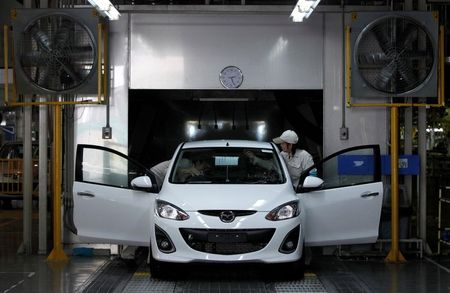(Refiles to correct typographical error in bullets)
BANGKOK (Reuters) – Ford Motor Co is investing $900 million to upgrade factories in Thailand that build its Ranger pickup truck and Everest SUV, its largest-ever investment in the country.
The plan includes a near doubling of the number of robots at its Thai manufacturing plant and at AutoAlliance Thailand, a venture with Mazda Motor Corp, while $400 million of the investment will go towards its supply chain network.
It will also add a second shift to the Ford plant which will result in as many as 1,250 new jobs, bringing its workforce in Thailand to more than 9,000.
In Thailand, Ford is able to produce around 270,000 vehicles annually, Director of Communications Thailand and ASEAN Markets, Kamolchanok Prasertsom, said.
About 60% is exported Asia-Pacific markets like Australia, New Zealand and the Philippines where its pickup trucks are popular.
“If demand increases in the future, the proportion is adjusted on a monthly basis,” she said, adding that its export market is robust.
The factory upgrades will allow the company to better customise production for vehicles such as open cabs and four-door pickups to match demand.
The move contrasts with the closures of three of its plants in Brazil this year, part of a $11 billion global restructuring and its strategy to achieve 8% global operating margins. It is also pulling out of production in India where it has long struggled to make profit.
Thailand is Asia’s fourth-largest auto assembly and export hub, accounting for about 10% of the country’s GDP and manufacturing jobs.
Last year, General Motors sold its Thai factories to China’s Great Wall Motor, which has begun producing SUVs and plans to make electric vehicles in the country.
Thailand’s state-owned energy firm PTT Pcl has said it will invest $1 billion to $2 billion in an EV plant with Taiwan’s Foxconn < 2317.TW>.
(This refiles corrects typographical error in bullets)
(Reporting by Chayut Setboonsarng in Bangkok; Additional reporting by Sayantani Ghosh in Singapore; Editing by Stephen Coates, Edwina Gibbs and Louise Heavens)










